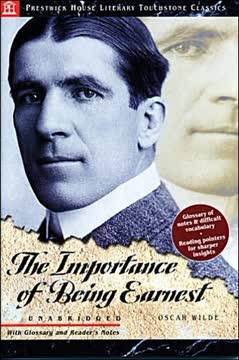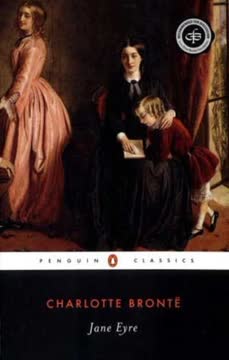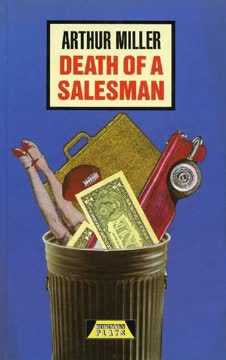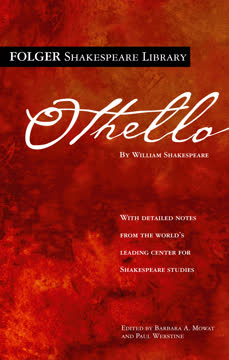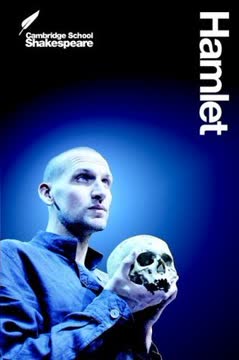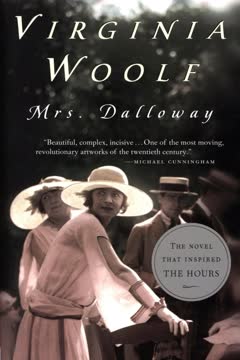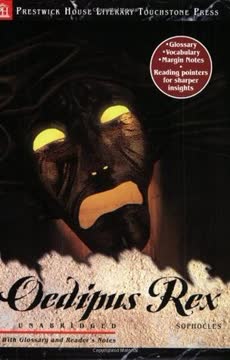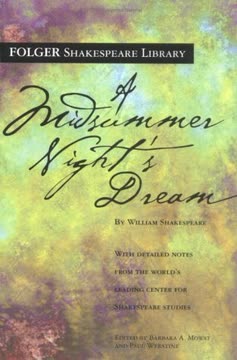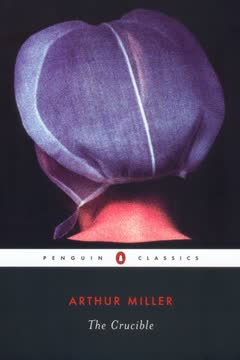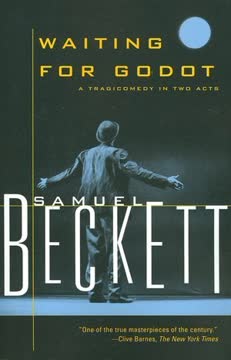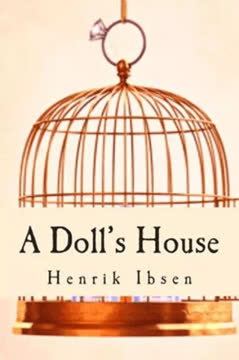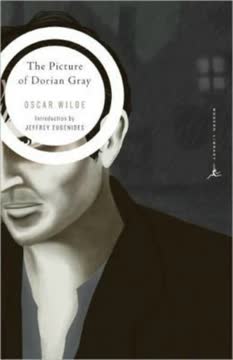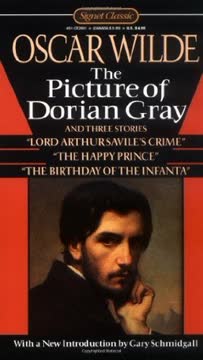Plot Summary
Double Lives, Double Names
Jack Worthing, a respectable country gentleman, escapes to London under the guise of visiting his wayward "brother" Ernest. Algernon Moncrieff, his witty friend, invents an invalid friend named Bunbury to avoid social obligations. Both men use these fictional personas to pursue pleasure and evade responsibility, setting the stage for a comedy of mistaken identities and social satire. Their duplicity is not just a means of escape but a commentary on the rigid expectations of Victorian society, where appearances matter more than truth. The play opens with their banter, revealing their cleverness and the absurdity of their schemes, and hinting at the chaos to come when their double lives inevitably collide.
Cucumber Sandwiches and Proposals
At Algernon's London flat, Jack prepares to propose to Gwendolen Fairfax, Algernon's cousin. Their conversation is interrupted by Lady Bracknell, Gwendolen's formidable mother, who is more concerned with social status than romance. The scene is filled with Wilde's trademark wit—cucumber sandwiches vanish, social conventions are mocked, and Jack's intentions are scrutinized. Gwendolen, meanwhile, is fixated on the name "Ernest," believing it embodies all that is trustworthy and romantic. Jack's proposal is accepted by Gwendolen, but Lady Bracknell's interrogation soon throws the engagement into jeopardy, exposing the fragility of love in a world obsessed with propriety.
The Handbag Mystery
Lady Bracknell's inquisition into Jack's background reveals a scandalous secret: Jack was found as a baby in a handbag at Victoria Station. This revelation horrifies Lady Bracknell, who deems Jack unsuitable for her daughter. The absurdity of the situation—where a man's worth is determined by the location and container of his discovery—highlights the arbitrary nature of social class. Jack's earnestness is undermined by the mystery of his parentage, and Lady Bracknell insists he "produce at least one parent" before she will consent to the marriage. The handbag becomes a symbol of lost identity and the play's central farce.
Bunburying Explained
Algernon gleefully exposes Jack's double life and admits to his own: he visits the country under the pretense of caring for his sick friend Bunbury. The term "Bunburying" is coined to describe the art of leading a double life for personal convenience. Both men justify their fabrications as necessary escapes from the suffocating expectations of society. Their conversation is a playful critique of Victorian morality, suggesting that everyone, in some way, is leading a double life. The audience is invited to laugh at the ridiculous lengths to which people will go to maintain appearances.
Gwendolen's Ideal Ernest
Gwendolen confides to Jack that her love is inseparable from his name—she could only ever marry a man called Ernest. Jack, who is actually named Jack, is dismayed but resolves to be christened "Ernest" to secure her affection. This fixation on names satirizes the superficiality of romantic ideals and the arbitrary nature of attraction. Gwendolen's unwavering belief in the virtue of "Ernest" is both endearing and absurd, setting up a central conflict: can love survive when it is based on something as trivial as a name?
Lady Bracknell's Interrogation
Lady Bracknell's relentless questioning of Jack exposes the hypocrisy and snobbery of the upper class. She values ignorance, income, and property over character or love. Her famous line—"To lose one parent may be regarded as a misfortune; to lose both looks like carelessness"—epitomizes her priorities. Jack's lack of pedigree is an insurmountable obstacle, and Lady Bracknell's refusal to bless the engagement underscores the play's critique of social conventions. The scene is both hilarious and biting, as Wilde lampoons the absurdity of aristocratic values.
Cecily's Romantic Diary
In the country, Jack's ward Cecily Cardew is introduced. She is imaginative, rebellious, and keeps a diary filled with romantic fantasies. Under the watchful eye of her governess, Miss Prism, Cecily longs for excitement and is fascinated by the tales of Jack's "wicked" brother Ernest. Her innocence and creativity contrast with the rigid world of the adults, and her diary becomes a space where she can script her own love story. Cecily's yearning for adventure foreshadows the chaos that will ensue when Algernon arrives, pretending to be Ernest.
Algernon's Country Intrusion
Seizing the opportunity for mischief, Algernon travels to Jack's country estate, posing as the infamous Ernest. He charms Cecily, who is delighted to meet the man she has heard so much about. Their flirtation is playful and exaggerated, with Cecily quickly "falling in love" and even inventing a past engagement. Algernon, equally smitten, proposes, and Cecily accepts—on the condition that he, too, is named Ernest. The farce deepens as both men are now entangled in their own lies, and the women's romantic ideals become increasingly entangled with mistaken identities.
Mourning and Mistaken Deaths
Jack returns home in mourning, having decided to "kill off" his fictional brother Ernest to end the charade. His plan is immediately complicated by Algernon's presence as Ernest, leading to confusion and comic distress. The household is thrown into chaos as Jack's attempt to restore order only deepens the deception. The theme of death is treated with irreverence, highlighting the triviality with which serious matters are handled in this world of artifice. The stage is set for a collision of truths and lies.
Cecily and Algernon's Engagement
Cecily and Algernon's whirlwind romance culminates in a hasty engagement, based entirely on Cecily's infatuation with the name Ernest. She reveals she has been "engaged" to him in her imagination for months, writing herself love letters and keeping mementos. Algernon, delighted, promises to be christened Ernest to fulfill her dream. Their engagement mirrors Jack and Gwendolen's, exposing the absurdity of basing love on names and fantasies rather than reality. The play's satire of romantic conventions reaches its peak as both couples are now engaged to men named Ernest—at least in theory.
Tea, Cake, and Rivalry
Gwendolen arrives at the country house, seeking Jack. She and Cecily meet, and a polite but fierce rivalry erupts as each believes herself engaged to "Ernest Worthing." Their conversation, laced with veiled insults and competitive offers of tea and cake, is a masterclass in comic tension. The truth is revealed when both men appear, and the women discover they have been deceived. Their initial animosity turns to solidarity, and they unite against the men's duplicity. The scene is a brilliant parody of social manners and the fragility of female friendship under pressure.
The Truth Unravels
Jack and Algernon are forced to confess their deceptions. The women, initially furious, are eventually swayed by the men's declarations of love and willingness to be christened Ernest. The farce reaches a fever pitch as the characters scramble to maintain their engagements and satisfy the demands of love, identity, and social approval. The play's central question—what is the importance of being earnest?—is both asked and mocked, as sincerity and artifice become indistinguishable in the pursuit of happiness.
Muffins and Masculine Distress
In the aftermath of their exposure, Jack and Algernon commiserate over muffins, lamenting their predicament. Their conversation is both ridiculous and poignant, as they debate the ethics of eating muffins in times of crisis. The scene underscores the triviality of their troubles and the resilience of male friendship in the face of romantic disaster. Wilde uses food as a symbol of comfort and distraction, poking fun at the tendency to avoid emotional confrontation through physical indulgence.
The Name Dilemma
Both couples are now determined to resolve the issue of names. Jack and Algernon arrange to be christened Ernest, believing this will satisfy Gwendolen and Cecily's romantic requirements. The absurdity of changing one's name for love is played for laughs, but also raises questions about identity and authenticity. The women's insistence on the name "Ernest" is both a joke and a critique of the superficiality of social and romantic ideals. The stage is set for the final resolution, as all obstacles now hinge on a single, ridiculous detail.
Lady Bracknell's Final Obstacle
Lady Bracknell arrives, determined to prevent the marriages. She interrogates Cecily's background and is initially unimpressed—until she learns of Cecily's substantial inheritance. Suddenly, Cecily becomes the ideal match for Algernon, and Lady Bracknell's objections vanish. Jack, however, refuses to consent to Cecily's marriage until Lady Bracknell allows him to marry Gwendolen. The negotiations are a farcical dance of self-interest and hypocrisy, exposing the transactional nature of marriage in upper-class society.
Miss Prism's Confession
The arrival of Miss Prism brings the play's mysteries to a head. Lady Bracknell recognizes her as the woman who, years ago, lost a baby in a handbag at Victoria Station. Miss Prism confesses her mistake, explaining how she accidentally swapped a manuscript for a child. Her confession is both comic and touching, providing the missing link in Jack's identity and resolving the play's central mystery. The absurdity of the situation is matched only by its emotional resonance, as lost family and love are finally restored.
The Lost Baby Found
With Miss Prism's confession, it is discovered that Jack is actually Lady Bracknell's nephew and Algernon's elder brother. His real name, it turns out, is Ernest—fulfilling Gwendolen's romantic ideal and resolving the play's central conflict. The revelation is both a parody of melodramatic coincidence and a genuine moment of catharsis. Jack's journey from foundling to gentleman is complete, and all obstacles to the marriages are removed. The play's intricate web of lies and misunderstandings is untangled in a single, joyous moment.
The Importance of Being Earnest
With all secrets revealed and all couples united, the play ends in celebration. Jack reflects on the "vital importance of being earnest," recognizing the irony that his pursuit of honesty has been achieved through a series of elaborate deceptions. Wilde's final message is both playful and profound: sincerity is less about truth than about style, and the pursuit of happiness often requires a little artifice. The curtain falls on a world where love, identity, and social status are all matters of performance—and where, in the end, everyone gets what they want.
Characters
Jack Worthing (Ernest)
Jack is the play's protagonist, a respectable country gentleman who leads a double life as "Ernest" in London. Raised as an orphan, his longing for belonging and love is complicated by the mystery of his origins. Jack is both sincere and sly, using deception to escape social constraints while earnestly seeking approval and affection. His relationship with Gwendolen is marked by genuine devotion, but also by the absurdity of her fixation on his assumed name. Jack's journey is one of self-discovery, culminating in the revelation of his true identity and the resolution of his romantic and existential dilemmas.
Algernon Moncrieff
Algernon is Jack's friend and Gwendolen's cousin, a charming and irreverent bachelor who delights in subverting social norms. His invention of "Bunburying" allows him to avoid responsibility and pursue pleasure, making him both a comic foil and a catalyst for the play's events. Algernon's flirtation with Cecily is impulsive and theatrical, mirroring his general approach to life. He is quick-witted, cynical, and deeply skeptical of conventional morality, yet ultimately reveals a capacity for genuine affection. Algernon's character embodies Wilde's critique of Victorian hypocrisy and the celebration of wit over earnestness.
Gwendolen Fairfax
Gwendolen is Lady Bracknell's daughter and Jack's beloved. She is intelligent, articulate, and fiercely independent, yet her romantic ideals are comically superficial—she insists she could only love a man named "Ernest." Gwendolen's interactions with Jack and Cecily reveal both her competitiveness and her capacity for friendship. She is both a parody of the Victorian ingénue and a subtle subverter of gender roles, asserting her desires with confidence. Gwendolen's journey is one of self-realization, as she learns to balance her ideals with the realities of love.
Cecily Cardew
Cecily is Jack's ward, a young woman raised in the country under the supervision of Miss Prism. She is romantic, creative, and somewhat naïve, keeping a diary in which she invents her own love story with "Ernest." Cecily's encounter with Algernon is a whirlwind of fantasy and reality, as she projects her dreams onto him and orchestrates their engagement. Her innocence is both a source of comedy and a critique of the sheltered lives of young women. Cecily's character highlights the power of imagination and the dangers of confusing fiction with reality.
Lady Bracknell
Lady Bracknell is the play's chief antagonist, a matriarch obsessed with status, propriety, and wealth. Her interrogation of Jack and her manipulation of her daughter's future are both hilarious and chilling, embodying the rigid values of the Victorian aristocracy. Lady Bracknell's wit is razor-sharp, and her priorities are unyielding—she values ignorance, income, and lineage above all else. Yet she is not without humor, and her eventual acceptance of Cecily (once her fortune is revealed) exposes the hypocrisy at the heart of her worldview. Lady Bracknell is both a figure of authority and a target of Wilde's satire.
Miss Prism
Miss Prism is Cecily's governess, a woman of learning and moral rectitude who harbors a secret from her past. Her lost manuscript and the accidental misplacement of a baby in a handbag are central to the play's resolution. Miss Prism is both a comic figure and a symbol of the fallibility of authority. Her affection for Dr. Chasuble adds a touch of romance, and her eventual confession provides the key to Jack's identity. Miss Prism's character underscores the theme of mistaken identity and the unpredictability of fate.
Rev. Canon Chasuble
Dr. Chasuble is the local rector, a man of learning and piety who is easily flustered by Miss Prism's attentions. He is earnest in both senses of the word, providing comic relief through his sermons and his awkward courtship. Chasuble's willingness to christen both Jack and Algernon as "Ernest" highlights the absurdity of the play's central conflict. His character represents the well-meaning but often ineffectual authority of the church in Victorian society.
Merriman and Lane
Merriman (the country butler) and Lane (Algernon's manservant) are minor characters who provide comic commentary and facilitate the action. Their dry wit and understated presence serve as a counterpoint to the absurdities of their employers. They represent the silent class that observes but rarely intervenes, highlighting the insularity and self-absorption of the upper class.
Bunbury (Imaginary)
Though never seen, Bunbury is Algernon's fictional invalid friend, invented to provide an excuse for avoiding social obligations. Bunbury represents the lengths to which individuals will go to escape the constraints of society, and his "death" marks the end of the era of double lives. The concept of Bunburying is central to the play's exploration of identity and the performance of self.
The Handbag
The black leather handbag in which Jack was found is both a literal and symbolic device. It represents the randomness of fate, the arbitrariness of social status, and the play's central theme of mistaken identity. Its discovery resolves the play's mysteries and restores order, but not before exposing the absurdity of the values it upholds.
Plot Devices
Mistaken Identity and Double Lives
The central plot device is the use of mistaken identity and the maintenance of double lives. Jack and Algernon both invent alter egos—Ernest and Bunbury—to escape social obligations and pursue romance. This device drives the action, creating a web of lies that leads to comic misunderstandings, romantic entanglements, and ultimately, self-discovery. The play's structure relies on the gradual unraveling of these deceptions, with each revelation escalating the stakes and deepening the satire.
Satire and Social Critique
The play is a masterclass in satire, using wit, irony, and exaggeration to expose the hypocrisy and absurdity of upper-class society. Dialogue is laced with epigrams and paradoxes, turning every conversation into a critique of marriage, class, gender, and morality. Wilde's use of social conventions as both plot obstacles and sources of humor allows him to question the very foundations of respectability and earnestness.
Coincidence and Melodrama
The resolution hinges on a series of improbable coincidences—Miss Prism's lost handbag, Jack's true parentage, and the revelation that his real name is Ernest. These melodramatic twists are both a parody of Victorian drama and a commentary on the role of fate in human affairs. Wilde uses coincidence not just for comic effect, but to highlight the arbitrariness of social status and the constructed nature of identity.
Foreshadowing and Irony
Wilde employs foreshadowing through dialogue and character actions—Jack's desire to be christened, the repeated references to the name Ernest, and the mysterious origins of the handbag. Irony permeates the play, as characters' earnestness is constantly undercut by their duplicity, and the pursuit of truth leads only to more elaborate lies. The final revelation—that Jack was always "Ernest"—is the ultimate ironic twist, resolving the play's conflicts while reinforcing its satirical message.
Analysis
Oscar Wilde's The Importance of Being Earnest remains a dazzling satire of Victorian society, exposing the absurdities of social conventions, the superficiality of romantic ideals, and the performative nature of identity. Through razor-sharp wit and farcical plotting, Wilde dismantles the pretensions of the upper class, revealing that sincerity is often a matter of style rather than substance. The play's enduring appeal lies in its playful subversion of expectations: love is based on names, respectability is determined by the contents of a handbag, and happiness is achieved through a series of elaborate deceptions. Wilde's characters are both archetypes and individuals, their struggles with identity and desire as relevant today as they were in his own time. The lesson is clear: in a world obsessed with appearances, the "importance of being earnest" is less about truth than about the courage to embrace one's own contradictions. The play invites us to laugh at the follies of society—and, perhaps, at ourselves.
Last updated:
Review Summary
The Importance of Being Earnest is widely praised as a witty and hilarious comedy that satirizes Victorian society. Readers appreciate Wilde's clever dialogue, memorable characters, and sharp social commentary. The play's farcical plot involving mistaken identities and romantic entanglements delights audiences. Many consider it Wilde's masterpiece, noting its enduring humor and relevance. While some find the comedy over-the-top, most enjoy the play's clever wordplay and critique of upper-class social norms. Wilde's genius for satire and comedy shines through in this beloved work.
Similar Books
Download PDF
Download EPUB
.epub digital book format is ideal for reading ebooks on phones, tablets, and e-readers.
